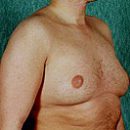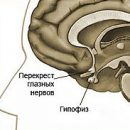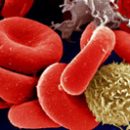Overweight is a real problem of humanity, but to reduce weight and cure obesity quite difficult. The most effective way to lose weight is based on increasing physical activity and reducing the number of food consumed.
Content
For most people who have overweight or obesity, the most reliable and most effective way to lose weight is to eat less, but move more.
For the treatment of obesity use basic methods of treatment:
- non-drugs
- Drug
- Surgical
Non-drug ways of treatment of obesity
The main non-malen treatments are a balanced diet and physical exertion.
Diet
 A nutritionist must appoint a balanced diet in obesity to obesity, which will make it taking into account all the pattern of lifestyle and the presence of concomitant diseases.
A nutritionist must appoint a balanced diet in obesity to obesity, which will make it taking into account all the pattern of lifestyle and the presence of concomitant diseases.
However, there are general recommendations following which any obese can achieve a significant reduction in advent of fats with food. To do this, follow several ordinary rules:
- cut all visible fat from meat and birds, do not forget to remove the skin with chicken before cooking
- Carefully remove fat from the surface of the broth
- There are as little oil and margarine or sala, instead more use vegetable oil, prepare only on vegetable oil
- It is necessary to prefer roasted meat or fish boiled and stewed dishes, it is allowed to eat meat, fish and birds cooked in the oven or grilled
- It is worth abandoning dishes made in deep fryer or when using a large amount of fat
- Recommended to use low-fat dairy products
- There is as little fat sausages, ham, sterns, sausages, pate, nuts
- Increase in the day diet the number of products with coarse tissue (coarse flour bread, vegetables, legumes, broken cereals, salad, greens)
- For dessert, choose fruit, not ice cream, diabetic chocolate or cookies
- Use as little alcohol as possible
The basic principles of rational nutrition are a decrease in the caloric content of the daily diet by 20%, which is recalculated on the kilocaloria of 500-1000 kcal / day (but at least 1,200 kcal / day), a decrease in fat consumption to 30% of the daily diet and the refusal of alcohol consumption ( When combustion 1 g, 7 kcal is allocated). The diet must be balanced on the main food ingredients, that is, 55-60% of the daily diet should be on carbohydrates, 15-16% - on proteins, for fats - no more than 30% of daily calorage. Meal must be carried out at least 4-5 times a day with small portions.
Many dietconds recommend to keep a diary of food, which indicates the number, the time of eating time and its calorie content. Maintaining such a diary will help to deal with the reasons that lead to overeating and accumulating excess weight. In addition, the presence of such information will help the doctor more correctly draw up a diet and pick up calirage.
Changing food habits is the main point to achieve weight loss. If the main part of the daytime is coming for the evening and night - from this habit will have to refuse. Normally, breakfast should be 25-30% of the daily caloric content of the diet, lunch - 30-35%, afternoon - 10-15%, dinner - 20%.
Increase physical activity
In combination with rational nutrition, daily exercises, carefully thought out and specially selected in accordance with the possibilities and physical condition, are an important component of the long-term body mass reduction program.
After clarifying the results of the survey, as well as in the absence of contraindications, drug therapy may be applied.
Medical treatment options
List of funds officially recognized drugs to reduce weight contains a small amount of drugs. When prescribing drugs, genesis (mechanism for development) of obesity is necessarily taken into account. The duration of therapy is determined only by the doctor.
In the complex treatment of obesity, methods of elecorporal blood purification (plasmapheresis) and aufok (ultraviolet blood irradiation) can be used.
Surgery
The purpose of surgical treatment is to significantly reduce body weight by influencing the course related to obesity of diseases, and as a result - improving the quality of life.
The main advantage of surgical treatment methods before non-surgical is their durability (weight loss after surgery is lifelong). Over time, the operated patients formed a new quality of life, disability is restored.
Absolute contraindication to operations is:
- aggravation of peptic ulcer of the stomach and duodenum
- pregnancy
- Alcoholism, drug addiction, severe mental illness
- oncological diseases
- severe irreversible changes from vital organs
Patient age (less than 18 years and over 60 years) is considered as a relative limitation. Surgical and anesthesiological risk in patients with severe obesity forms exists always, and it is higher than the larger body mass and the heavier concomitant disease obesity. Surgical treatment of obesity in no way should be replaced by the concepts «Abdominoplasty» and «Liposuction». These operations are used in cosmetology and plastic surgery in order to eliminate the defects of the figure, but not for the treatment of obesity. Operations used to reduce body weight (bariary operations) are operations on the organs of the digestive tract, as a result of which either a significant reduction in the number of food consumed, or its absorption in the intestinal tract.
Surgical methods of treatment of obesity are known since the 50s of the 20th century. Today, all types of operations presented are performed in the open method and using less traumatic laparoscopic methods,.E. after a few small punctures on the abdominal wall.









